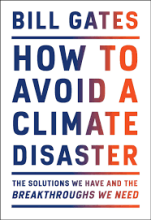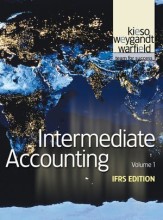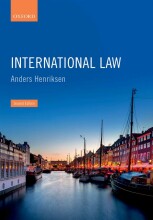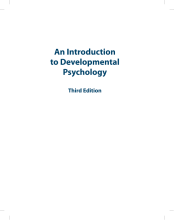How we grow things
34 important questions on How we grow things
Bill Gates identifies two human activities within the "agriculture, forestry, and other land use" sector that contribute to the emissions of greenhouse gases, which two does he name?
- Raising animals for food;
- This ranks the highest contributor of greenhouse gas emissions in the sector;
- Growing crops to harvesting trees
With agriculture, what are the main culprits when it comes to global warming?
- Methane; which causes 28 times more warming per molecule than carbon dioxide
- Nitrous oxide; which causes 265 times more warming than carbon dioxide
One of the conclusion of Paul Ehrlich's book "The Population Bomb" was that "In the 1970s and 1980s hundreds of millions of people will starve to death and that India couldn't possibly feed 200 million more people by 1980" but none of this came to pass. Can you explain the main reason that Ehrlich's conclusion was wrong?
- They didn't factor in the power of innovation
- As an example = they didn't account for people like Norman Borlaug - plant scientist - who sparked a revolution in agriculture that led to the gains in various countries - Borlaug did it by developing varieties of wheat with bigger grains so they can provide more more food
- Higher grades + faster learning
- Never study anything twice
- 100% sure, 100% understanding
Why, according to Bill Gates, will producing meat and dairy require us to grow even more food?
- A chicken, for example, has to eat two calories' worth of grain to give us one calorie of poultry; this means you have to feed a chicken twice as many calories as you'll get get from the chicken when you eat it. For other animinals:
- A pig eats three times as many calories as we get when we eat it
- A cow eat six calories of feed for every calorie of beef.
- As a result, the more calories we get from meat, the more plants we need to grow for the meat.
Can you explain how a cow's stomach produces methane?
- In the process "eneteric fermentation" bacteria inside the cow's stomach break down the cellulose in the plant, fermenting it and producing methane as a result.
Around the world, there are roughly a billion cattle raised for beef and dairy, can you explain how much methane they produce each year as a result of the "enteric fermentation" process?
- The methane they produce has the same warming effect as 2 billion tons of carbon dioxide, accounting for about 4% of all global emissions.
Can you explain what animal poop consists of?
- It is a mix of powerful greenhouse gases: mostly nitrous oxide, plus some methane, sulfur, and ammonia.
Can you explain how the amount of methane produced by a cow is affected by where it lives?
- If a cow lives in North America or Europe, it's more likely to be an improved breed that converts feed into milk and meat more efficiently and they get better veterinary care and higher-quality feed, which means it'll produce less methane.
- For example, cattle in South America emit up to five times more greenhouse gases than cows in North America do, and in African cattle emit even more.
How can we reduce emissions by spread the improved breeds?
- If we spread the improved breeds more broadly - especially crossbreeding African cows to be more productive and making higher-quality feed available and affordable - it'll reduce emissions.
How can we reduce emissions by spread the best techniques of handling manure?
- Rich farmers have access to various techniques that get rid of the manure while producing fewer emissions; if we make these techniques more affordable, they will spread to poor farmers, which will lead to less emissions.
A solution that a vegan would have to reduce the emissions in agriculture, according to Bill Gates, is "Instead of trying all these ways of reducing emissions, we should just stop raising livestock" but Gill Gates doesn't think it's realistic, why is that?
- Meat plays too important a role in human culture, for instance, eating meat at festivals and celebrations.
How can we, according to Bill Gates, stop eating meat but still enjoying the taste of meat?
- Plant-based meat: plants products that mimic the taste of meat.
- Bill Gates invested in two companies that have plant-based meat products.
Can you explain the reasons that plant-based meat is better for the environment than animal-meat?
- Plant-based meat use less land and water;
- Plant-based meat are responsible for fewer emissions;
- Plant-based meat need less grain to produce them, reducing; the pressure on food crops and the use of fertilizers too;
- Plant-based meat is better for animal welfare;
Artificial meats come with hefty Green Premium, but Bill Gates is optimistic that they will eventually be cheaper than animal-meat, why is that?
- A ground-beef substitute costs 86% more than animal-meat, but if the demand to these alternatives increases, they will eventually be cheaper than animal meat.
A questions that Bill Gates had is "Will people like artifical meat enough to switch?" According to Bill Gates, plant-based meat isn't fake meat, what does he mean by this?
- Artificial meat has the same fat, muscles, and tendons as any animal.
How is artificial meat made?
- Artificial meat is made in a lab; scientists start with a few cells drawn from a living animal, let those cells multiply, and then coax them into forming all the tissues we're used to eating.
What is a advantage and disadvantage of creating artificial meat in a lab?
- A advantage is that it can be done with little or no greenhouse gas emissions, except for things like electricity to power the labs;
- The disadvantage is that it's very expensive;
What is an obstacle what artificial meat have to overcome related to state legislatures?
- At least 17 U.S state legislatures have tried to stop name these products "meat" in stores, and one of these states proposed banning their sale altogether.
A way to cut down on emissions from food, is by wasting less of it, how many food is throwing away by people in world and why is this bad for people and the environment?
- In Europese, parts of Asia, and sub-Saharan Africa, more than 20% of food is thrown away. In the U.S, it's 40%.
- When wasted food rots, it produces enough methane to cause as much warming as 3.3 billion tons of carbon dioxide each year.
Fertilizer is magical, according to Bill Gates, why is that?
- It provides plants with essential nutrients, including potassium, and the one that's especially relevant to climate change; nitrogen.
Why is nitrogen a mixed blessing, according to Bill Gates?
- It's closely linked to photosynthesis, the process by which plants turn sunlight into energy, so it makes all plant life - and therefore all our food - possible;
- It makes climate change worse;
Can you explain the reason that nitrogen is worse for climate change?
- To grow, crops, you want tons of nitrogen, but most plants can't make it on their own: they get it from ammonia in the soil, where it's created by various microorganisms. A plant grow as long as it get nitrogen, so humans fed their crops extra nitrogen;
- Here's the thing: Microorganisms that make nitrogen expend a lot of energy in the process, so they do it only when they absolutely need to. When we add synthetic fertilizer, the natural organisms in the soil sense the nitrogen and stop producing it on their own.
To make synthetic fertilizer, we have to produce ammonia, can you can explain why this is worse for climate change?
- Produce ammonia, is a process that requires heat, which we get by burning natural gas, which produced greenhouse gases and to move it, we load it on trucks that are powered by gasoline;
According to Bill gates, there isn't a zero-carbon alternative for fertilizer, why is that?
- We could get rid of the emissions involced in making fertilizer by using clean electricity, but that's an expensive process and that's the missions from making fertilizer, we don't have a way to capture the freenhouse gases that come from applying it.
It's possible to get crops to absorb nitrogen much more efficiently than they do, how can this be done and what is a obstacle in this process?
- If farmers have technology to minitor their nitrogen levels and apply fertilizer in the right amount over the course of a growing season;
- But a obstacle in this process it that it's expensive and a time-consuming process;
Can you explain why deforestation is bad for climate change?
- When you start removing trees, that stored carbon gets released into the atmosphere as carbon dioxide;
Deforestation isn't happening for the same reasons in every place, can you explain the reason for deforestation in Brazil, Africa, Nigeria and Indonesia?
- In Brazil, most of the destruction of the Amazon rain forest has been to clear pasture land for cattle. As the world eat more meat, it means fewer trees there.
- In Africa, it's a matter of clearing land to grow food and fuel for the continent's frowing population.
- Nigeria, one of the biggest exporters of charcoal, which is created by charring wood.
- Indonesia, deforestation is a way to make room for palm trees, which provide the palm oil you'll find in products you u se, like shampoo.
According to Bill Gates, deforestation isn't a technological problem, but a political and economic problem, why is that?
- People cut down trees when the incentives to cut down trees are stronger than the incentives to leave them alone.
- We need political and economic solutions, like paying countriess to maintain their forests.
A frequently heard solution about deforestation is "planting trees as a way to capture carbon dioxide from the atmosphere", why is this, according to Bill Gates, more complicated than you think?
- It sounds like a simple idea - the cheapest, lowest-tech carbon capture imaginable - it is more complicated than you think; it needs to be studies a lot more, but for now its effect on climate change appears to be overblown.
According to Bill Gates, you have to answer number of questions in global warming, the first question is "How much carbon dioxide can a tree absorb in its lifetime?"
- It varies, but you can think of 4 tons over the course of 40 years.
According to Bill Gates, you have to answer number of questions in global warming, the second question is "How long will the tree survive?"
- If the tree burns down, all the carbon dioxide will be released into the atmosphere.
According to Bill Gates, you have to answer number of questions in global warming, the third question is "In what part of the world will you plant the tree?"
- Trees in snowy areas cause more warming than cooling, but on the other hand, trees in tropical forests cause more cooling than warming; trees in the midlatitudes - between the tropics and the polar circles - are more or less a wash.
According to Bill Gates, you have to answer number of questions in global warming, the fourth question is "Was anything else growing in that spot?"
- If you eliminate a soybean farm and replace it with a forest, you've reduced the total amount of soybeans available, which will drive up their proce, making it more likely that someone will cut down trees somewhere else to grow soybeans. This will offset at least some of the good you do by planting your trees.
How many acres' worth of trees need you to absorb the emission produced by an average American in their lifetime?
- You need around 50 acres' worth of trees, planted in tropical areas;
The question on the page originate from the summary of the following study material:
- A unique study and practice tool
- Never study anything twice again
- Get the grades you hope for
- 100% sure, 100% understanding
































